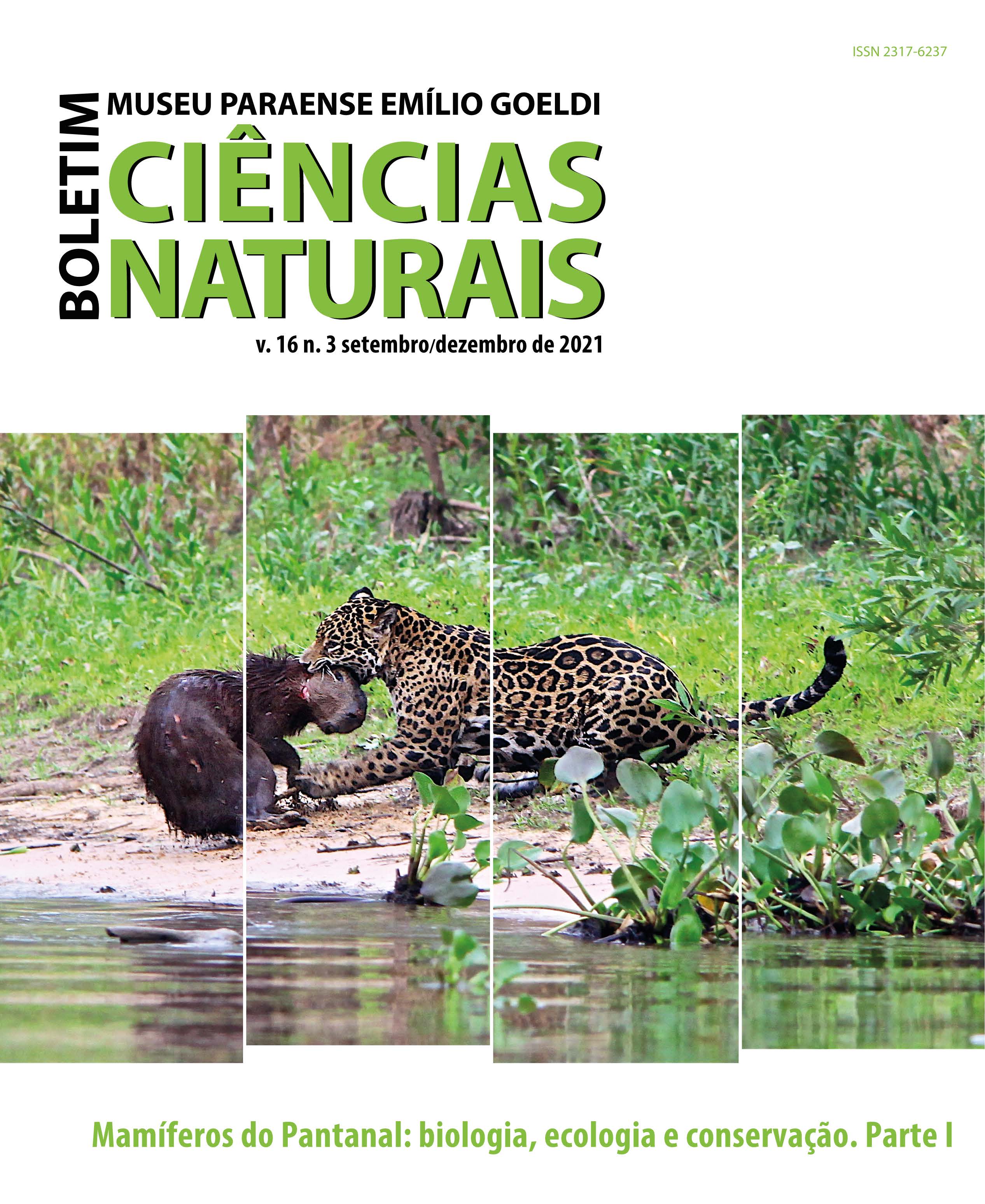Health and the conservation of wildlife in nature
DOI:
https://doi.org/10.46357/bcnaturais.v16i3.806Keywords:
One Health, Wildlife health, Parasitism, ConservationAbstract
Wild populations are constantly threatened due to the global expansion of human population and consequent loss of original habitats, pollution, increased movement of people and animals, and the introduction of exotic species. In this sense, hematological, biochemical, toxicological, and parasitological studies have been used to understand the health status of many wild species. There is a difficulty in interpreting the observed values, especially concerning the assessment of physiological parameters, since factors related to the individual and the environment, as well as animal caging and the use of drugs for sedation, influence the hematological values and biochemical dosages. In this context, data on parasitism and the health of wild mammals from the Pantanal were compiled through bibliometrics and discussed in terms of the resilience and sustainability of their populations. We conclude that the scientific community should work together with an organized society to encourage the creation and application of public conservation policies to maintain biodiversity and the continuity of ecological processes.
Downloads
Published
Issue
Section
License
Publication means fully assigning and transferring all copyrights of the manuscript to the journal. The Liability Statement and
Assignment of Copyrights will be enclosed with the notice of acceptance. All the authors must sign the document and return it to the journal.






